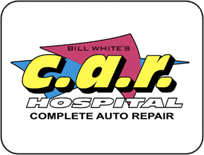 An average of 13,000 Americans are killed between Memorial Day weekend and Labor Day, some as a result of unperformed vehicle maintenance, according to the National Highway Traffic Safety Administration.
An average of 13,000 Americans are killed between Memorial Day weekend and Labor Day, some as a result of unperformed vehicle maintenance, according to the National Highway Traffic Safety Administration.
Each year, neglected maintenance leads to more than 2,600 deaths, nearly 100,000 disabling injuries and more than $2 billion in lost wages, medical expenses and property damage.
Most mechanical failures can be traced to neglected maintenance. For example, the U. S. Department of Transportation reports the leading cause of mechanical breakdown on our nation’s highways is overheating, a condition that is easily avoidable. Other deficiencies that are simple to detect include low antifreeze/coolant, worn or loose drive belts and defective cooling system hoses.
Checking tire pressure and inflating a tire costs nothing, yet an average of 21 percent of cars inspected in check lanes during National Car Care Month have under inflated tires. This can lead to a blowout and a serious accident.
The Car Care Council offers these fuel-saving tips:
- Vehicle gas caps. About 17 percent of the vehicles on the roads have gas caps that are either damaged, loose or are missing altogether, causing 147 million gallons of gas to vaporize every year.
- Under inflated tires. When tires aren’t inflated properly it’s like driving with the parking brake on and can cost a mile or two per gallon.
- Worn spark plugs. A vehicle can have either four, six or eight spark plugs, which fire as many as 3 million times every 1,000 miles, resulting in a lot of heat and electrical and chemical erosion. A dirty spark plug causes misfiring, which wastes fuel. Spark plugs need to be replaced as recommended by the manufacturer.
- Dirty air filters. An air filter that is clogged with dirt, dust and bugs chokes off the air and creates a “rich” mixture — too much gas being burned for the amount of air, which wastes gas and causes the engine to lose power. Replacing a clogged air filter can improve gas mileage by as much as 10 percent, saving about 20 cents a gallon.
Fuel-saving driving tips include:
- Don’t be an aggressive driver. Aggressive driving can lower gas mileage by as much as 33 percent on the highway and 5 percent on city streets, which results in 10 to 66 cents per gallon.
- Avoid excessive idling. Sitting idle gets zero miles per gallon. Letting the vehicle warm up for one to two minutes is sufficient.
- Observe the speed limit. Gas mileage decreases rapidly at speeds above 60 mph. Each mpg driven over 60 will result in an additional 10 cents per gallon. To maintain a constant speed on the highway, cruise control is recommended.
For more information, visit www.CarHospital.net, call (815) 758-7425 or send an e-mail to carhospital@comcast.net.







